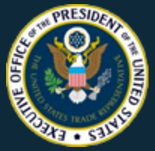
Washington, D.C. – The Trade Facilitation and Trade Enforcement Act provides new tools and resources to protect American innovation.
The Office of the United States Trade Representative (“USTR”) commended Congress for passing the Trade Facilitation and Trade Enforcement Act of 2015, which will bolster trade enforcement efforts.
“This bill adds new tools that we’ll use in the work we do every day to hold America’s trading partners accountable,” said U.S. Trade Representative Michael Froman. “Coming on the heels of negotiating [the Trans-Pacific Partnership (“TPP”)], the highest-standard trade agreement in history, this bill will further boost enforcement of the groundbreaking intellectual property, labor, environment, and many other fully enforceable commitments we’ve secured.”
The Trade Facilitation and Trade Enforcement Act of 2015 includes new tools and resources to help ensure that our trading partners live up to their commitments. Among other provisions, this bipartisan bill:
• Establishes the Interagency Center on Trade Implementation, Monitoring, and Enforcement at USTR which brings together expertise from across government to aid in monitoring and enforcing U.S. trade agreements. This codifies into law a 2012 Executive Order that first created the interagency approach to boosting enforcement efforts.
• Creates a Trade Enforcement Trust Fund to provide new resources – authorized at $15 million per year – for trade enforcement efforts.
• Improves the United States’ ability to target trading partners who attempt to evade U.S. antidumping or countervailing duty orders.
• Bolsters enforcement tools to protect intellectual property rights, including by authorizing the seizure of circumvention devices, and by facilitating the seizure of suspect merchandise through improved coordination with intellectual property right holders.
• Mandates a strategic multi-year plan for trade enforcement produced by the U.S. Customs and Border Protection and U.S. Immigration and Customs Enforcement.
• Establishes Centers of Excellence and Expertise for trade enforcement throughout U.S. Customs and Border Protection to bolster trade enforcement at ports of entry.
• Strengthens the United States’ ability to enforce intellectual property rights by creating a National Intellectual Property Rights Coordination Center and setting staffing and training requirements that enhance the federal government’s enforcement of IP rights at our borders.
• Requires a report on the effectiveness of trade enforcement activities including looking at fraud prevention and transshipments.• Improves international cooperation among law enforcement and customs officials to strengthen intellectual property rights enforcement.
Passage of the Trade Facilitation and Trade Enforcement Act of 2015 comes shortly after the United States completed negotiations on the TPP, which goes further than any trade agreement in history to hold trading partners accountable to tough, enforceable trade standards. Among the enforceable commitments in TPP are new protections for intellectual property rights that support U.S. jobs and innovation.
 Indiana Intellectual Property Law News
Indiana Intellectual Property Law News

